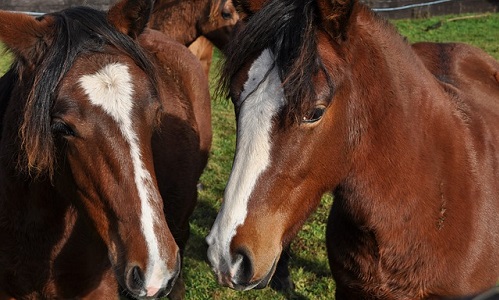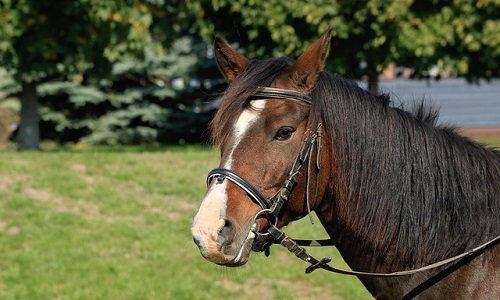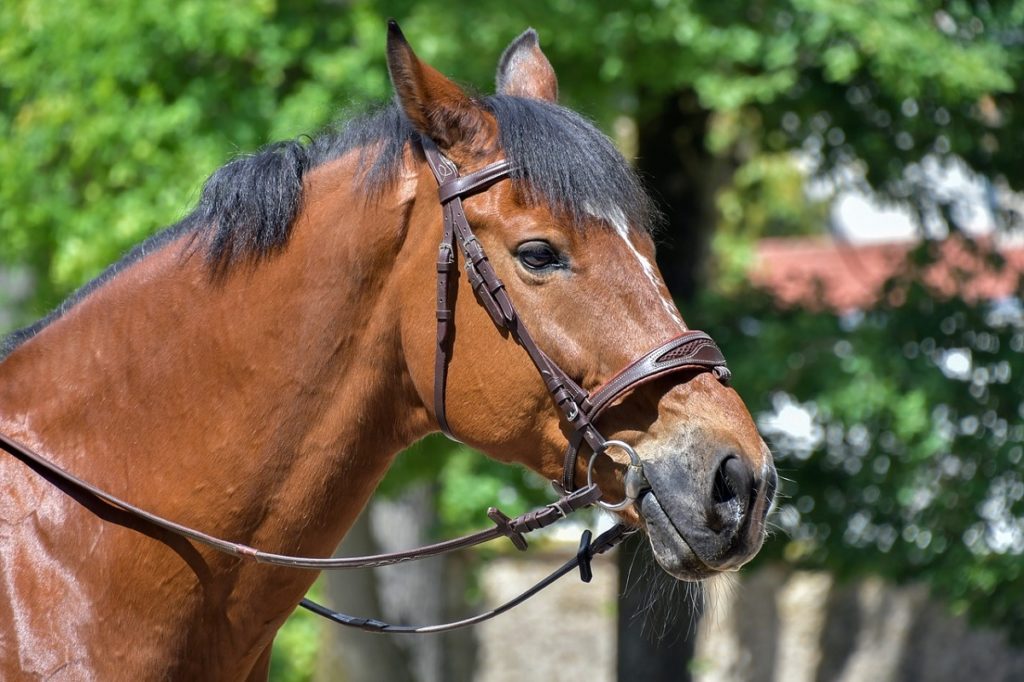The lifespan of a horse actually ranges from 20-30 years, while on average most horses living to be about 25 years old. There was even a time when 25 years was considered a very long life for a horse, not just average. But with enhanced medical care and a deeper knowledge of equine health, many horses are living longer than 25 years and even beyond the three-decade mark.
 There are several factors that can affect a horses lifespan and their overall health, including diet and exercise, environment and illness. Of course, all owners want their horses to live healthy, long lives. And they do their best to foster a healthy environment to extend the horse’s lives and time with these beloved equines.
There are several factors that can affect a horses lifespan and their overall health, including diet and exercise, environment and illness. Of course, all owners want their horses to live healthy, long lives. And they do their best to foster a healthy environment to extend the horse’s lives and time with these beloved equines.
Advances in veterinary medicine have played a significant role in the cause for longer equine lifespan. Due to these advances, owners are more aware of the role of nutrition and conditioning, among other factors, such as genes. Just like with humans, the better a horse is taken care of, the better they will age. With horses though, there are some differentiators based on breed, including breeds that age faster or generally live longer. Such as with ponies, they tend to live longer and reach ages well into the 30s.
With that being said, there are a lot of factors to consider when providing the average lifespan of a horse. Let’s talk about signs of aging, best practices to foster a longer horse lifespan, things to consider when caring for your horse and differences in lifespan based on breed.
Longer Horse Lifespan
Avoiding illnesses like horse laminitis or horse colic are a major component to a prolonging equine life – colic, arthritis, and respiratory disease have the ability to claim a horses life. Horses are at increased risk of succumbing to these illnesses if not treated properly and promptly.
And as horses age, it’s especially important to pay special attention to their dental and hoof care, and their feed as well. Paying attention to your horse’s teeth can avoid health complications, such as colic, malnutrition and weight loss (due to not being able to properly chew food). Horses teeth continue to wear down as they age which can gradually make chewing harder and harder. Regular dental check-ups and attention can positively affect their health and help to avoid dental disease or the inability to chew and swallow foods.
Next, a well-fed horse can very well equal a healthy horse. It may seem pretty straight-forward – provide your horse a healthy and balanced diet full of the nutrients they need and they will be healthier and ultimately, live a longer life. But just like we all need a reminder for ourselves to eat healthily and exercise, it’s a good reminder for our horses too. Lifestyle, age, and activity level can all contribute to a horse’s nutritional needs.
Young horses, athletes, and geriatric horses all require different amounts of vitamins and minerals to stay in good health. Be sure to also take notice of their energy levels and weight so that you can take swift action should something be amiss. Consulting your vet is the best plan. They’ll take all aspects of your horses condition into consideration and offer expert advice on the best diet plan for your horse’s health.
Breeds & Signs of Aging
Similarly to canines, smaller equine breeds will generally outlive larger breeds. And most horses mature around the age of five and begin to show signs of aging at 18 years old. Aging horses can still remain active and continue to have lasting relationships with those who care for them. Some other fun facts about a horse and their age is that one horse year is generally equivalent to six and a half human years. There are even some varying accounts as to the oldest living horse, many say that there have been horses living into their 50s and 60s.
 All in all, just like humans there are several contributing factors to life expectancy and aging gracefully. Be sure to monitor their growth, eating habits, activity levels, dental health and take into consideration the information provided by your vet. Listening to and understanding the benefits of these measures, as well as following the advice of your vet for overall equine health best practices can significantly affect your horse’s longevity.
All in all, just like humans there are several contributing factors to life expectancy and aging gracefully. Be sure to monitor their growth, eating habits, activity levels, dental health and take into consideration the information provided by your vet. Listening to and understanding the benefits of these measures, as well as following the advice of your vet for overall equine health best practices can significantly affect your horse’s longevity.
Sources:
- “All About Horse Age and Lifespan.” The Spruce Pets, Accessed 2 Jan. 2018. www.thesprucepets.com/all-about-horse-age-and-lifespan-1887395.
- “How to Compare Your Age to Your Horse’s Age.” The Spruce Pets, Accessed 2 Jan. 2018. www.thesprucepets.com/comparing-horse-to-human-age-1887320.
- Barakat, Christine. “5 Ways to Help Your Horse Live Longer.” EQUUS, 22 May 2007, Accessed 2 Jan. 2018. www.equusmagazine.com/management/livelonger_052207-8303.




